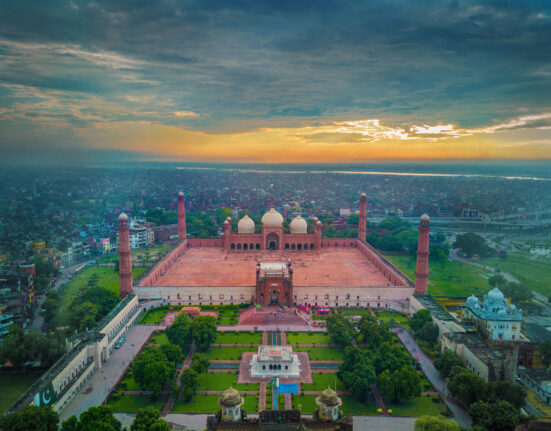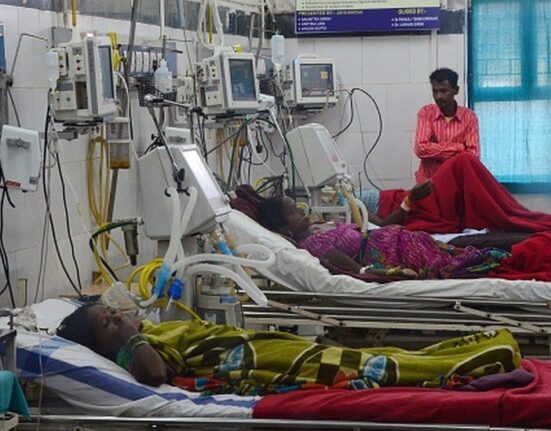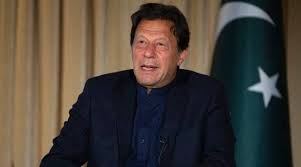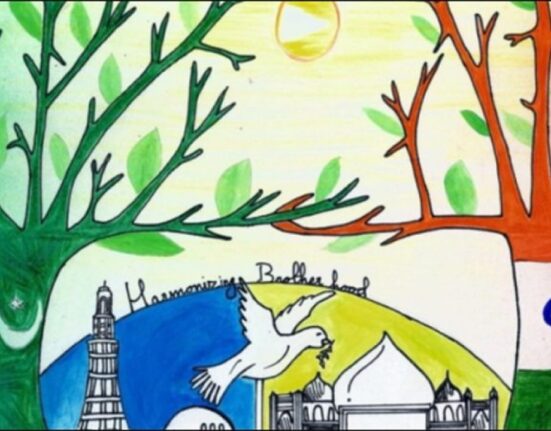For any peace process to sustain and bear dividends like increased trade and energy cooperation in the region, both India and Pakistan, not as adversaries but as neighbors are duty-bound to first restore the security and dignity of human life in Kashmir.
Qaiser Khan
After two years of increased hostility on the Line of Control-LoC in the disputed Kashmir region, India and Pakistan reached a ‘respite’ and reiterated the 2003 ceasefire agreement that called for a cessation of hostilities from both sides and an observance to inviolability of the Line of Control.
This attempt at reconsolidating the remnants of the old status-quo that lasted before August 5th 2019 when India unilaterally changed the special status of Jammu & Kashmir, drew a mixed response from the people on both sides of LoC.
For the people living at the LoC, it indeed was a huge sigh of relief but not an overture that would appeal to the skepticism of the masses that only grew in the recent times.
Much of their skepticism owes to the fact that such agreements have a history of being vulnerable to the crests and troughs of larger Indo-Pak relations and also to the realization that reposing faith in old status-quo is nothing but a crafted naivety.
However, it is a welcome sign that ceasefire is holding up and not a single bullet has been fired on the LoC since the ceasefire was announced. On the other hand, it doesn’t call for much explanation why people on both sides of LoC, predominantly Kashmiri Muslims have lately become more searching and insecure towards their political future. It was expected that the ceasefire will be extended to the hinterland in Kashmir Valley but, on the contrary, more than a dozen freedom fighters and six Indian armed forces personnel were killed in various encounters last month.
This month already has recorded the killing of another twelve freedom fighters with irreparable damage to the houses and other properties caught in the crossfire. Burning down of structures where freedom fighters are apparently hiding has become a hallmark of India’s stringent counter insurgency practices in Kashmir. As the ceasefire agreement underpinned the inviolability of the LoC, the freedom fighters are unlikely to get any significant external support either.
In such circumstances, to expect that Kashmiri people will turn a blind eye to the unrelenting onslaught on their kith & kin is an unfair expectation and flawed understanding.
The political leadership in Kashmir Valley though silenced and invisibilized over time welcomed the reiteration of the ceasefire on LoC but didn’t keep mum about the worsening security situation inside Kashmir.
Chairman of the moderate faction of All Parties Hurriyat Conference, Mirwaiz Umar Farooq and former Chief Ministers Mehbooba Mufti and Farooq Abdullah remained cautious in their praise for the Indo-Pak bonhomie and made their support conditional to the inclusion of Kashmiri voices in the Indo-Pak peace process.
For the people of Kashmir Valley, a ceasefire is only good if it’s not an isolated managerial act but part of a comprehensive conflict resolution framework inclusive of the political aspirations of the Kashmiri people.
In the echo chamber of Kashmiri politics, what resonates is the loud emphasis on a meaningful political resolution of the Kashmir conflict and any deliberate or hasty attempt at liquidating the resistance movement calls for the wrath of the masses.
It has been the case lately as stalwarts like Syed Ali Shah Gilani, the top resistance leader of Kashmir and the Prime Minister of Azad Jammu & Kashmir, Raja Farooq Haider expressed concerns over the Indo-Pak rapprochement efforts. They were of the view that putting Kashmir on the back burner is tantamount to leaving a festering wound open that will only result in more serious complications in time.
Subtly, the old guard of the Kashmiri resistance politics and much of the rank and file of AJK’s political parties’ has come closer and expressed that they need not jump the gun and join the rapprochement ship as the waters seem murkier than ever before.
This understanding is substantiated by a recent Global Trends report released by the National Intelligence Council in Washington DC that predicts a grim future for South Asia including the possibility of a large-scale war between India and Pakistan in the next five years.
The report entails a convincing analysis of the state of affairs in South Asia and puts the prospects for increased regional trade as ‘low’; given how the security situation is likely to unfold in coming years.
Contrary to the analysis made by various defense experts in India, the report argues that the ability of some groups to carry out significant attacks in India is likely to ‘persist and may increase’ that will put at risk, the uneasy normalcy in the region.
As we are entering what’s likely to be an important summer in Kashmir, it is imperative that all considerations are kept in mind before moving forward. The worsening human rights situation in Kashmir Valley, RSS’s civilizational assault on Kashmir’s political/cultural identity and continuous denial of political space to Kashmiris is quite likely to result in a response of nature predicted in the Global Trends report.
Kashmiris for much of their history has remained wedged in the regional power dynamics and have lately found themselves in a defenseless situation yet again. This situation will prompt them to be more vociferous about their inalienable right of self-determination with an increased focus on their security.
For any peace process to sustain and bear dividends like increased trade and energy cooperation in the region, both India and Pakistan, not as adversaries but as neighbors are duty-bound to first restore the security and dignity of human life in Kashmir.
The writer is associated with the Centre for Peace, Development and Reforms (CPDR), Islamabad.













